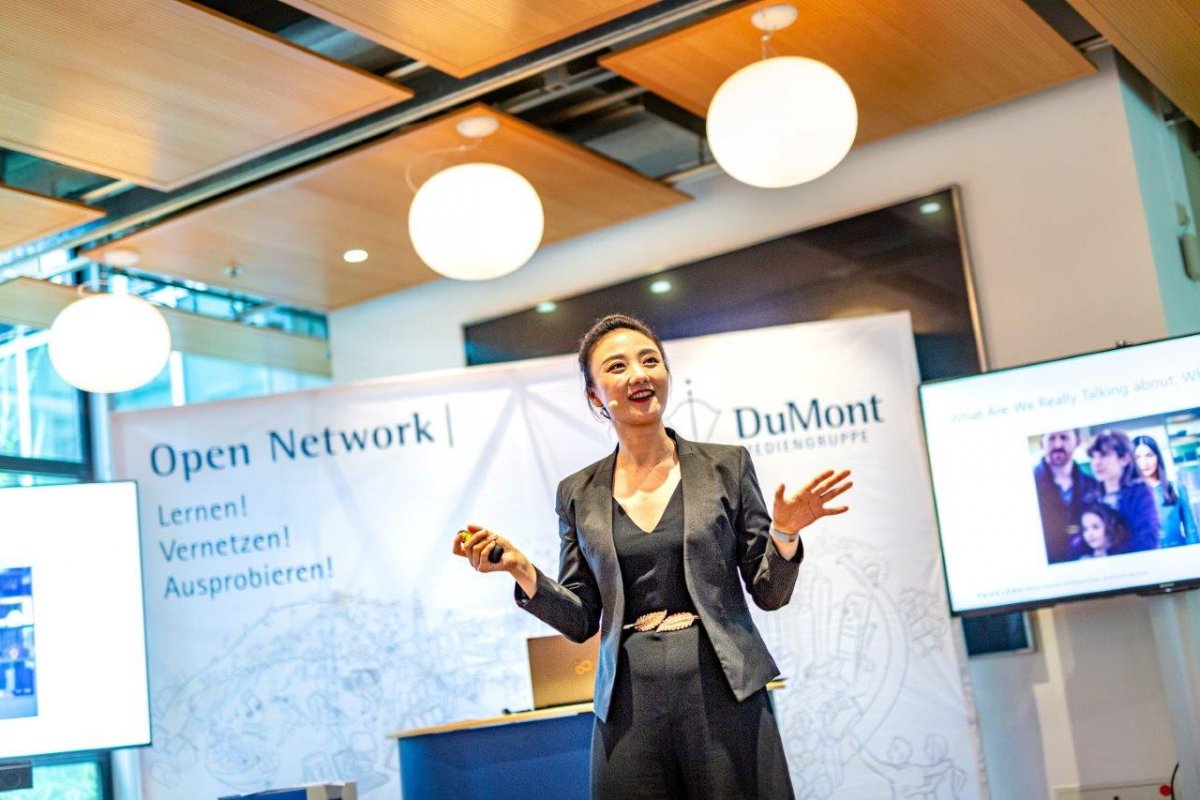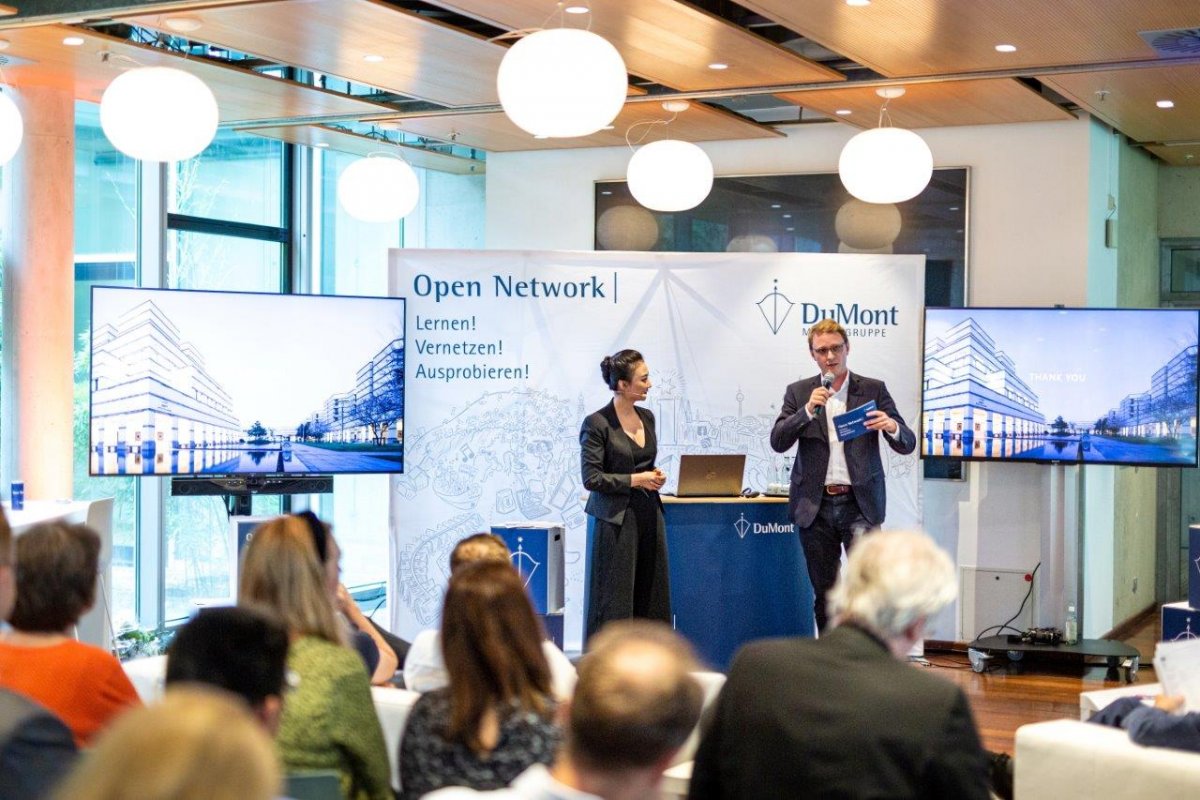Cologne Event Explores Economic Impact of AI
July 11, 2019. Cologne – Nearly 130 attendees gathered at the Neven DuMont Haus in Cologne, Germany, this evening for a special talk by CEIBS Lecturer of Strategy Guo Bai on Transformative Forces of AI. Among other things, Dr. Bai’s lecture discussed the nature of the hype surrounding artificial intelligence and whether it can make a meaningful and positive contribution to the global economy. Citing previous work in the field, Dr. Bai began by explaining to participants why AI and IT technologies have not yet played a strong role in enhancing the productivity of our economy – at least according to productivity statistics.
“Similar to other types of general purpose technologies (GPTs), the true power of AI can only be released when it is integrated with different industries and facilitates to spawn innovations,” Dr. Bai said. “Such processes of diffusion and integration require time and high levels of investment. In the early stages of this diffusion, investment often exceeds gains, and can thus result in a decrease rather than growth in productivity statistics.”
When compared with the energy revolution experienced in the late-nineteenth and early-twentieth centuries, Dr. Bai stated that many of the complexities associated with the application of AI are predicted to be even greater.
“Unlike the 1st and 2nd Industrial Revolutions, the digital revolution is about information,” she said. “In other words, it changes the way we communicate and coordinate. Such change has the potential to structurally alter value chains, industries and even the economic and social systems in general.” She added further that, “We often say that ‘data is the new oil’. This claim is only partially correct. Data is the new oil in the sense that it is indeed at the core of digital economy. However, data is not oil because it is not simply an energy source. The transformation the Digital Revolution represents will be even more sophisticated.”
Nevertheless, despite the unusual difficulties we may face in managing AI enabled systems and although the capitalisation of AI relies on specialised applications, she pointed out that it also represents a powerful re-distributive force.
“When debating about the impact of AI on jobs, our attention should not be paid only to the number of jobs replaced and created. It is crucial to understand what kinds of jobs, or job functions, are replaced by the machines – and which kinds of human capabilities are becoming more valued,” Dr. Bai explained. “It has been commonly agreed that AI is more likely to replace repetitive work, while creative capabilities are going to be highly valued. Such tendency might, in aggregate, suppress the income share of the majority of population, but gives a strong edge to the few most creative people in the world. It is crucial for us to understand how to respond to such tendency with the right set of social institutions, in order to avoid further income inequality.”
Ultimately, Dr. Bai concluded her talk by stating that she believes AI has the potential to both solve humanity’s greatest challenges and create its greatest nightmares.
“Two features of AI make it extremely powerful and at the same time dangerous. With the help of AI, we can leverage stronger computational power that enables us to understand each and every individual, feed them information and provide them solutions that are tailor-made to them. Such capability can increase efficiency and welfare, but it can also make our society more granular. People might have different perceptions of the same reality,” she said. “At the same time, AI can also help us manage systems of larger scales and higher complexity. That capability can support us to deal with system-wide problems like climate change, but it might also challenge the stability of social institutions by systemically attacking their flaws. One example of that is the negative impact Cambridge Analytica had on representative democracy.”
Today’s event was organised by CEIBS in partnership with DuMont Media Group as part of the latter’s Open Network series. For more information about upcoming CEIBS events, please visit our events page here.















